October 2009
Armed Virginia Sloop - Masts and Rigging
25 - October - 2009 - 19:40
Finally, a long overdue update on the ship. I moved on from the bowsprit and formed the main mast, the topmast, the booms, and the yards. I settled on a technique for thinning the dowels that seemed to work pretty well: Since I didn't have a lathe, I put the dowels into my electric drill (being careful not to put them in TOO tight, since that leaves dents in the wood), and then set the drill up to the highest speed and just held sandpaper against it. This would be fairly painful using my bare hands, but I happened to have some of those silicon oven mitts, which let you hold very hot things (I had gotten them for smoking ribs). So, using the gloves, and holding 150 grit sandpaper against the spinning dowels, they were fairly quickly down to the proper diameter and taper.
After that, it was just a matter of building the trestle tree (where the main mast meets the top mast) and adding various extra bits and nubs to the yards and masts.
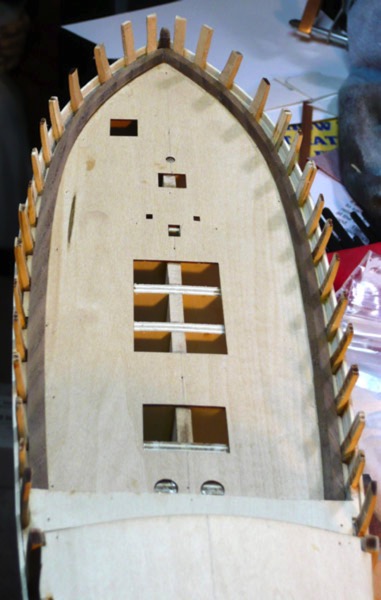
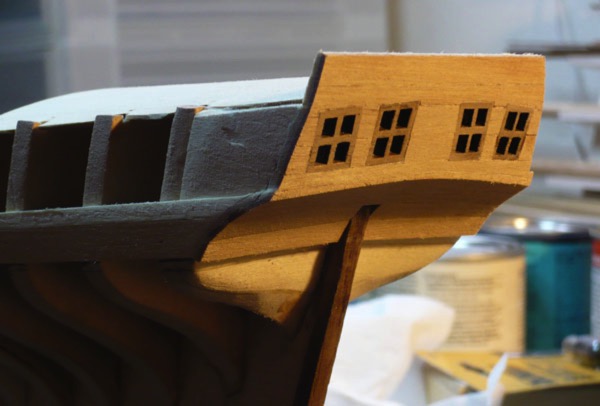
Below you can see the bases of the booms, with card stock wrapped around, painted and then with polyurethane on it, to simulate the iron bands that were on the real ships. You can also see the sail hoop things on the mast. Since my ship won't have sails on it, they just sit there on the mast. I took this opportunity to try out "Black It" metal blackening solution, which is supposed to chemically blacken various metals. In my case it really just turned them sort of rust colored. Although, since that looks fairly natural in the context, I decided to go with it.
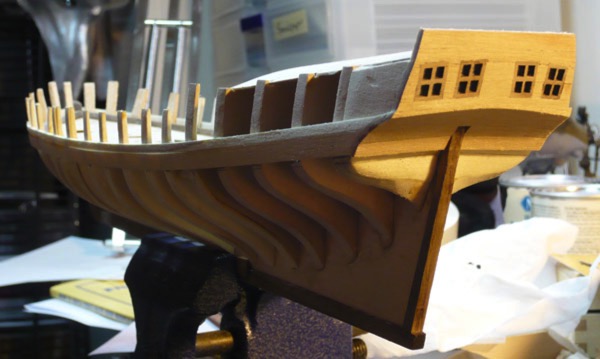
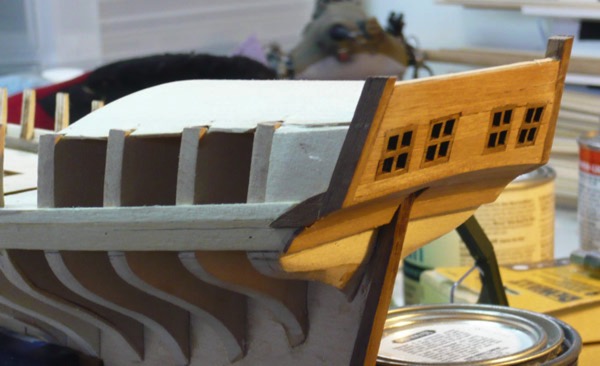
With all of the various wooden parts of the rigging complete, I moved on to the strings. The practicum that I am following had me start with the bowsprit rigging and then prep almost all of the rigging on the lower mast before actually gluing the mast in place. Below you can see the completed bowsprit rigging, as well as the partially-rigged lower mast and trestle tree. On the main mast, on a few of the strings have actually been connected to the ship itself, so many of them are hanging loose in a disorderly fashion, which explains their fairly messy appearance in the photos.
Ship trivia of the day: Currently I am mostly just dealing with what is called the 'standing rigging', which are the ropes that generally do not move when the sails go up and down, but instead serve to hold the various masts, etc in place. These ropes were usually coated with tar, to waterproof them, and so, on my model, are made from the black string.
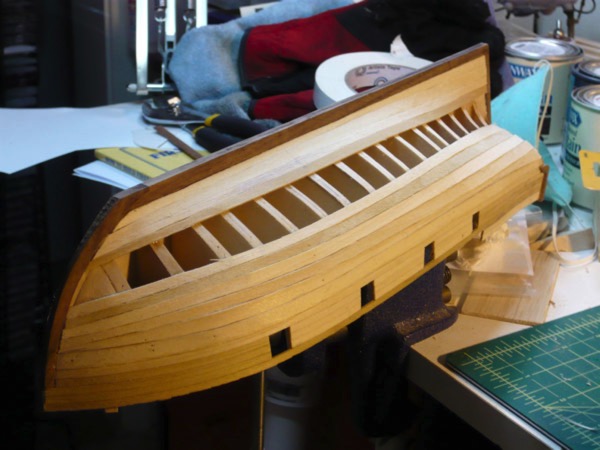
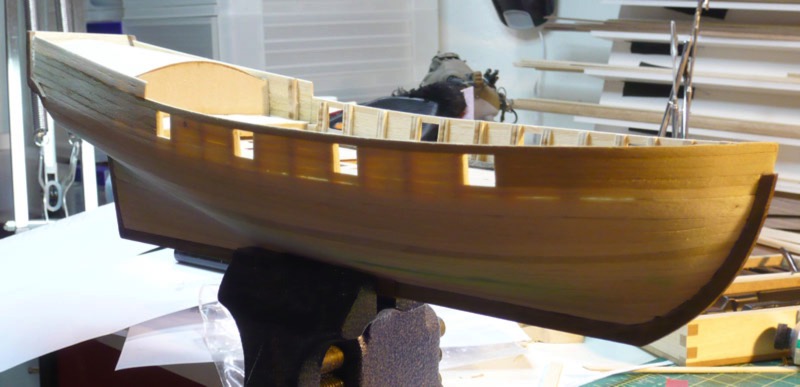
Here are a few photos of the upper rigging meeting the ship.
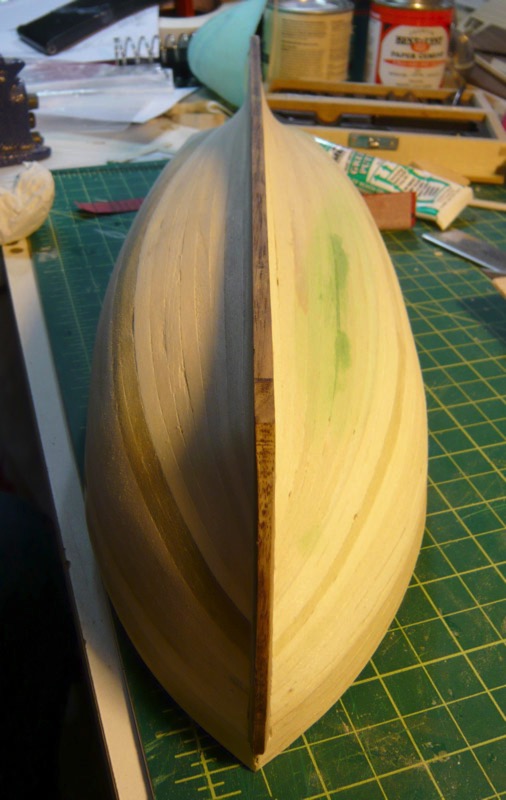
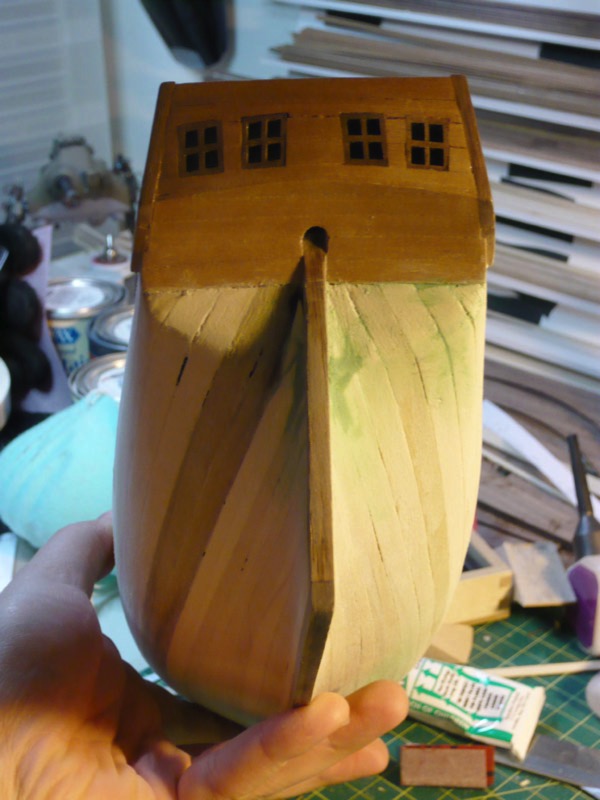
Finally, the ship in its current state. Standing rigging in progress, with mast and bowsprit attached. The rigging is moving along at a good pace so far, so I am hoping to increase the frequency of my updates on it :)
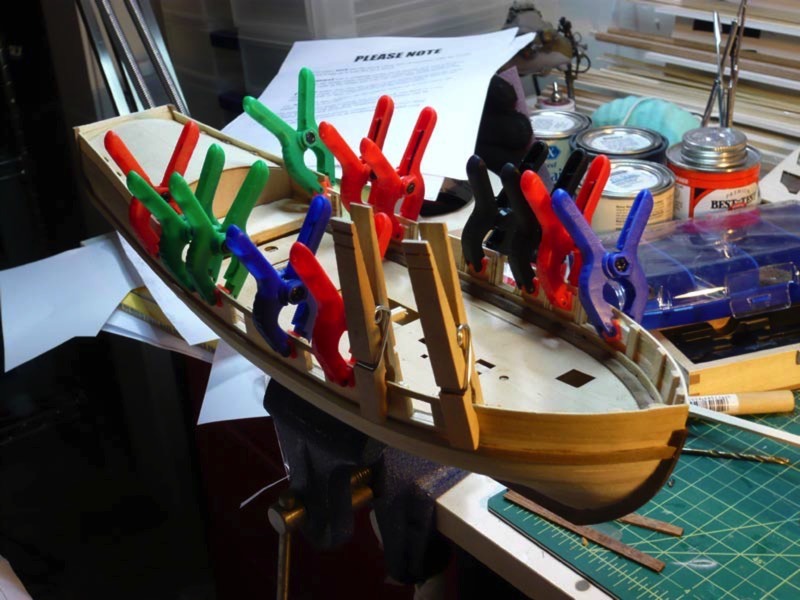
After that, it was just a matter of building the trestle tree (where the main mast meets the top mast) and adding various extra bits and nubs to the yards and masts.


Below you can see the bases of the booms, with card stock wrapped around, painted and then with polyurethane on it, to simulate the iron bands that were on the real ships. You can also see the sail hoop things on the mast. Since my ship won't have sails on it, they just sit there on the mast. I took this opportunity to try out "Black It" metal blackening solution, which is supposed to chemically blacken various metals. In my case it really just turned them sort of rust colored. Although, since that looks fairly natural in the context, I decided to go with it.


With all of the various wooden parts of the rigging complete, I moved on to the strings. The practicum that I am following had me start with the bowsprit rigging and then prep almost all of the rigging on the lower mast before actually gluing the mast in place. Below you can see the completed bowsprit rigging, as well as the partially-rigged lower mast and trestle tree. On the main mast, on a few of the strings have actually been connected to the ship itself, so many of them are hanging loose in a disorderly fashion, which explains their fairly messy appearance in the photos.
Ship trivia of the day: Currently I am mostly just dealing with what is called the 'standing rigging', which are the ropes that generally do not move when the sails go up and down, but instead serve to hold the various masts, etc in place. These ropes were usually coated with tar, to waterproof them, and so, on my model, are made from the black string.


Here are a few photos of the upper rigging meeting the ship.


Finally, the ship in its current state. Standing rigging in progress, with mast and bowsprit attached. The rigging is moving along at a good pace so far, so I am hoping to increase the frequency of my updates on it :)

